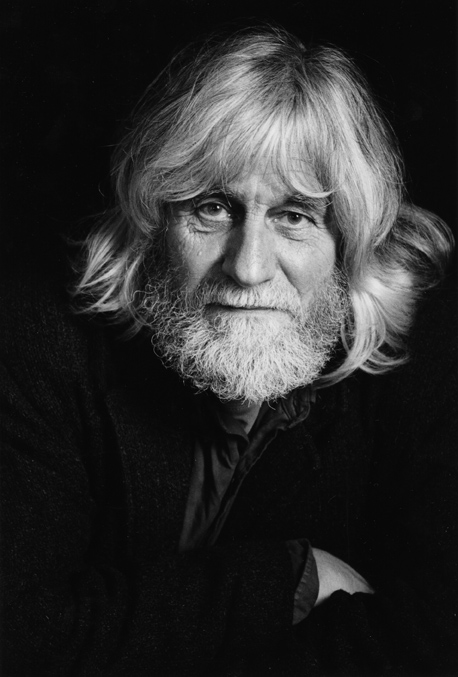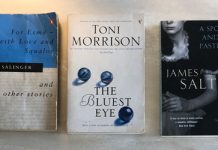A regular contributor to The Marshwood Vale Magazine, Ron Frampton’s contribution to recording the social history of the South West community was enormous. His son Magnus Frampton recalls Ron’s life and work.
Marshwood Vale readers will be familiar with the photographs and stories of regular contributor Ron Frampton. Ron passed away in June this year. In this piece, we will be recalling his life and work, and his interests in photography, local and personal histories, and the preservation of local culture.
Ron was born in Courshay Cottage, on the edge of Hawkchurch in 1940. Thoroughly a local man, he never left the area: living in Holdich, Tatworth, Thorncombe, and Churchill, he managed to stay within 6 miles of his place of birth. Apart from a year exploring the British Isles in his twenties, he hardly travelled, rarely holidaying outside his beloved West Country and seldom leaving the country.
Ron’s parents were locals. His mother, Dorothy Frampton (née Churchill) was a professional cook, his father Arthur Frampton a chauffeur and gardener. Ron was not only aware of his family’s social history at a young age, he was fascinated by it his whole life long. His paternal grandfather, whom he remembered well from his early childhood, was born in Chard Union Workhouse; he later discovered that his paternal great-grandmother had experienced a similar fate in Beaminster. Ron attempted to research these family histories in his late teens, approaching his grandfather’s brother but found him closed and taciturn. Perhaps this disappointing personal experience shaped his later interest and skill in eliciting valuable personal life stories from family, friends, and local people.
The primary interest of Ron’s youth was a quite different one though. Being a child of the golden age of the British motor industry led to Ron pursuing an ambitious career choice: motor engineering. Both Ron and his brother Brian Frampton completed this extensive practice and college-based training at a remarkably young age. Ron and Brian quickly established a highly successful and well-regarded motorcycle business. Within a few years of their 1960 start, Frampton Bros quickly built up a customer base of over 400, building and repairing the British motorbikes. Their passion was clear to all. In their free time Ron and Brian competed in off-road motorcycle scrambling events. The British motorcycle industry entered a crisis period in the mid-1960s, but Ron and Brian were able to quickly shift their focus to auto engineering, and thus remained a successful economic unit.
Ron enjoyed his work in motor engineering, but the coming decades saw him developing new interests. His childhood fascination with photography had developed. By the late 1960s he was regularly giving well-attended slideshows. Friendships with local people who had received the privilege of a wider education than his own expanded his experiences: the Pinney family, museum curator John Sales, and West Country author Monika Hutchings for instance. Parallel to this, Ron deepened his knowledge of nature and wildlife with the Somerset natural history group, where he made some lifelong friends. Ron had always been interested in his environment, in the broad sense of the term: geographical, natural, social, and cultural. By the 1970s, this interest in social and natural history had evolved into keen and clear political and ecological views. Ron attended and photographed demonstrations on a variety of social, political, peace, and environmental issues. In the 1980s he was keenly involved in environmental activism. He became area coordinator for the environmental pressure group Friends of the Earth. Ron organised campaigns, coordinated media coverage, and learnt to sell his cause with passion and conviction.
In the 1980s Ron left motor engineering for good, pursuing his lifelong passion by retraining as a photography teacher. He successively picked up qualifications at the Licentiate, Associate, and Fellowship levels, parallel to developing his college photography courses into exciting degree-level programmes. He did this in beautiful and inspiring locations such as Symondsbury College and Dillington House. Ron was proud of his awards and achievements: receiving the Fenton Medal, being a Royal Photographic Society Fellowship assessor, and managing to find his way into Debrett’s People of Today. His students, however, will probably instead recall his passion and commitment to helping them learn and qualify. He was an able teacher, fostering the technical skill-base of his students, whilst infusing them with his passions: both for the art of monochrome photography (with the specialisation of the fine silver gelatin print), and for the subjects (whether people, architecture or landscapes), and the subjects’ stories.
In the course of his publications Shadows in Time, Beyond the Vale, and Images in Time, Ron pursued a parallel activity: conserving the past. Perhaps this was to be expected, as preserving records of an endangered culture and environment in the face of its demise and disappearance had always been his key concern. He left the Axminster Heritige Centre an archive of his local and family history research. In his monthly assignments for the Marshwood Vale he typically gave his students the job of portrait photographer, whilst training them parallel to this as life-story researchers, piecing together and recording a life, and often a way of life that was either in danger of disappearing, or had already disappeared. The articles which resulted from this work captured not just West Country people’s faces, but the rich and unique human stories behind them. For this, we at the Marshwood Vale and our readers will remember Ron Frampton fondly.
Text by Magnus Frampton, July 2019. A celebration of Ron’s life and work will be held at the Bradshaw Meeting Room, Axminster Heritage Centre, on Saturday 7 September 2019, 2.00-3.30pm. Further information, or if you wish to attend or contribute please contact Magnus via info@marshwoodvale.com










